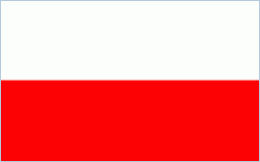
Further volumes of this series
Polish Diplomatic Documents 1981 January-June
Editor: Piotr Długołęcki
Warszawa 2021
ISBN: 978-83-66091-81-8
Pages: LXXXII + 1090
Polish Diplomatic Documents 1981 January-June is the 28th volume of the series issued by the Polish Institute of International Affairs. It consists of 526 documents that present Poland’s foreign policy in the first half of the year.
In that period, Poland’s domestic situation significantly influenced its diplomatic agenda. First of all, the activity, both domestic and foreign, of the Solidarity movement provoked constant international interest and became one of the crucial elements of Polish foreign policy. The strained domestic situation with crises emerging one after the other seemed to set the stage for direct Soviet intervention as a likely scenario.
The crises in Polish became a major problem in West-East relations, which were already strained as a result of the Soviet military intervention in Afghanistan. The stalemate during the CSCE Madrid meeting and the Vienna talks were further signs of deteriorating relations between the two military blocs.
It is worth stressing that Polish diplomatic activity in the first six months of 1981 was considerably constrained due to the worsening economic situation in the country. Poland was frantically trying to gain economic aid from abroad (mainly in the form of new credits), which made it difficult to cover other directions of diplomatic activity.
Nevertheless, Poland’s foreign policy in different areas took various forms. In relations with the Soviets and socialist countries, the Polish authorities tried to assure its partners that the situation in the country was under control. When it came to the West, Poland protested against interference in its domestic issues and relativised all Western remarks concerning repression of opposition groups. The Polish authorities also tried to counteract every attempt to raise the situation in Poland on international agendas, including in the European Parliament and the United Nations. At the same time, all countries, as well as the European Economic Community and the International Monetary Fund, were considered in Warsaw as potential sources of financial or food aid.
In is also worth mentioning that Poland’s relations with the Holy See were of a specific character, and the Polish authorities tried to take advantage of them in their policy towards the local episcopacy. Moreover, the assassination attempt of Pope John Paul II in May and Cardinal Stefan Wyszyński’s death later that same month had a visible impact on those relations as well.
The situation in the country echoed in Polish communities across the world, as they, on the one hand, protested against the policy of the authorities in Warsaw, and, on the other hand, tried to organise aid for Poles living in Poland.
The vast majority of the documents, derived mainly from the Archives of the Ministry of Foreign Affairs and the Central Archives of Modern Records, have not been previously published. This volume includes an index of individual names and an extended subject index, as well as information about the MFA’s structure at the time and a list of Poland’s bilateral agreements signed in the period.
